Heavy Medal Mock Newbery Finalist: HARRY VS. THE FIRST 100 DAYS OF SCHOOL by Emily Jenkins
Introduction by Heavy Medal Award Committee member Lisa Levin.

HARRY VS. THE FIRST 100 DAYS OF SCHOOL is one of the more simple chapter books on the Mock Newbery list, relatable to young children, teachers and librarians as a fabulous read-aloud. Author Emily Jenkins writes authentically about what it is like to be a 6-year-old starting first grade. So much so that, as a reader, this book brings you back to your childhood with lots of funny and endearing moments.
The characters are authentic and the language is precious. It is just like being in a classroom with first graders each day, using children’s daily conversations. Jenkins uses a diary format with 100 chapters using fabulous colorful and relatable illustrations by Pete Oswald (Bad Seed, Good Egg, and Couch Potato). Each chapter is short, full of great information and dialogue of daily life in first grade. We begin on the first day of school, September. 5, with the story ending on February 12 (the 100th day of school). (These dates are based on the school calendar of the 2018-2019 year, written in the author’s notes at the back of the book.)
ADVERTISEMENT
ADVERTISEMENT
Several themes are predominant in this book, such as families, communities, friendship, and empathy. This story includes various iterations of the types of families that exist today. Another theme is the social-emotional piece of communities and working together. The author creates a relatable story for children using smartboards in the classroom, tablets, and games, celebrating certain school holidays during the first 100 days of school such as Rosh Hashanah, Halloween, Indigenous People’s Day, and deals with the gratefulness piece of Thanksgiving instead of the story behind Thanksgiving and, lastly celebrating Martin Luther King. I love the author’s use of popular, real picture books relatable to curriculum themes. She references each title in the back of the book with her author’s note.
Reading HARRY is like going back to our childhood and remembering what it was like to go to school. Who isn’t nervous when starting school at any age? The anticipation of a new teacher, making friends, where you sit in class, whether you will be liked, the bathroom location, will the teacher yell, and so much more. These thoughts go through Harry’s mind on his first day of first grade. Walking to school with his big sister, Charlotte, and their mother not far behind, Harry deals with everyday anxieties about what school will be like. Will Harry be able to sit in class? Will he be a super listener? Emily Jenkins, through Harry’s character, shows the natural innocence of young children. Most important in this story is learning to count to 100 and celebrating the 100th day of school by bringing 100 objects and having a big celebration, a major unit in first grade.
Anyone who is a teacher will relate to this book. It is super sweet, endearing, and a joy to read.
Heavy Medal Award Committee members and others are now invited to discuss this book further in the Comments section below. Please start with positive observations first; stick to positives until at least three comments have been posted or we reach 1:00 pm EST. Let the Mock Newbery discussion begin!
Filed under: Book Discussion, Heavy Medal Mock
About Steven Engelfried
Steven Engelfried retired from full-time library work a couple years ago and now works as a part-time Youth Librarian at the West Linn Public Library in Oregon. He served on the 2010 Newbery committee, chaired the 2013 Newbery Committee, and also served on the 2002 Caldecott committee. You can reach him at sengelfried@yahoo.com.
ADVERTISEMENT
ADVERTISEMENT
SLJ Blog Network
Should I make it holographic? Let’s make it holographic: a JUST ONE WAVE preorder gift for you
Press Release Fun: Happy Inaugural We Need Diverse Books Day!
Magda, Intergalactic Chef: The Big Tournament | Exclusive Preview
When Book Bans are a Form of Discrimination, What is the Path to Justice?
Poetry Gateways, a guest post by Amy Brownlee
ADVERTISEMENT



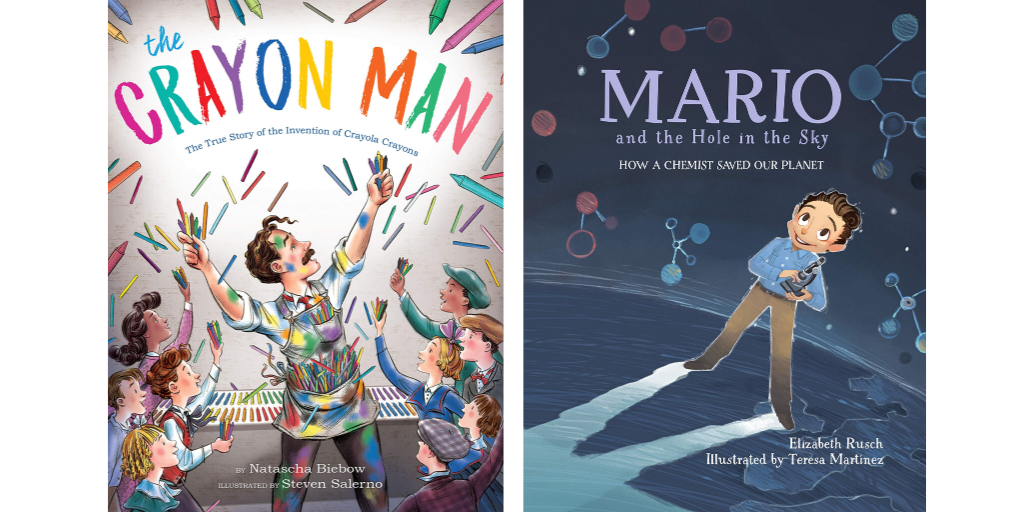
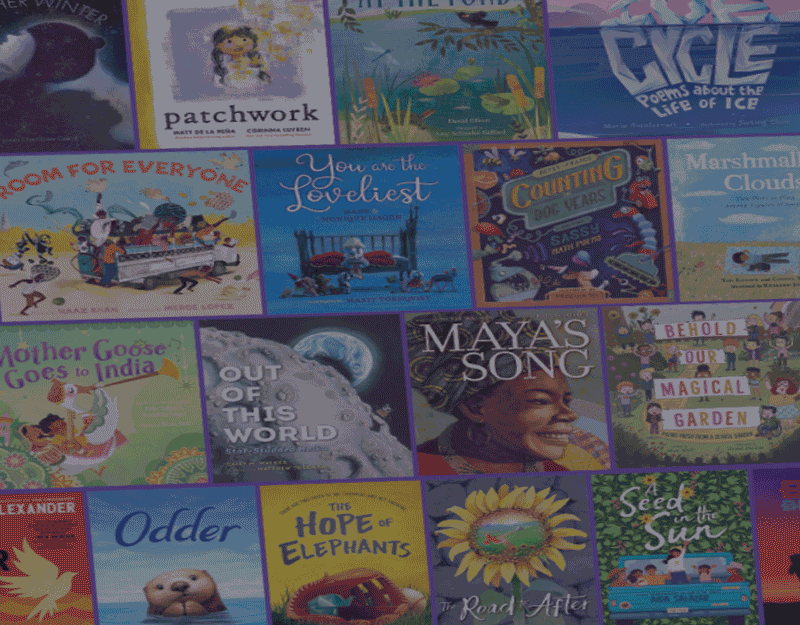
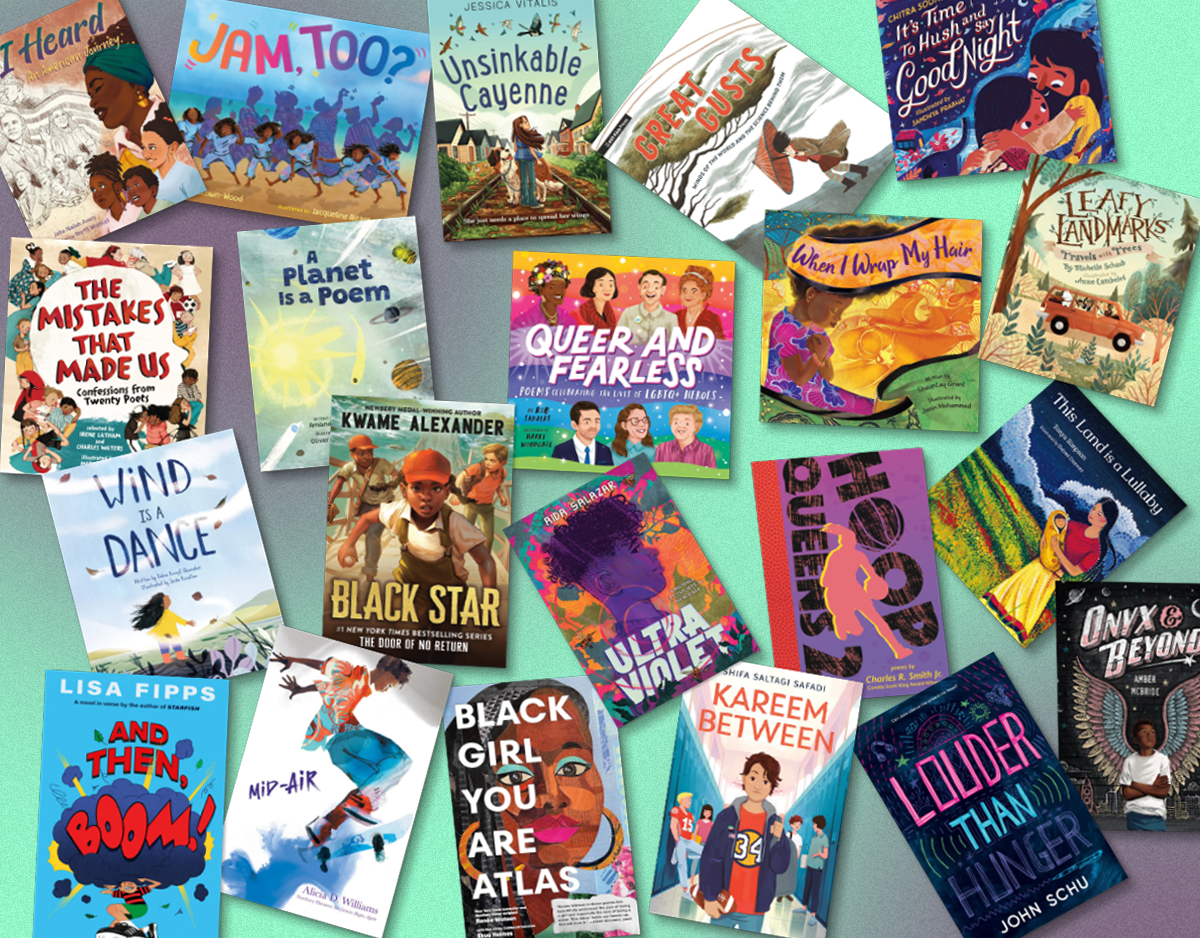
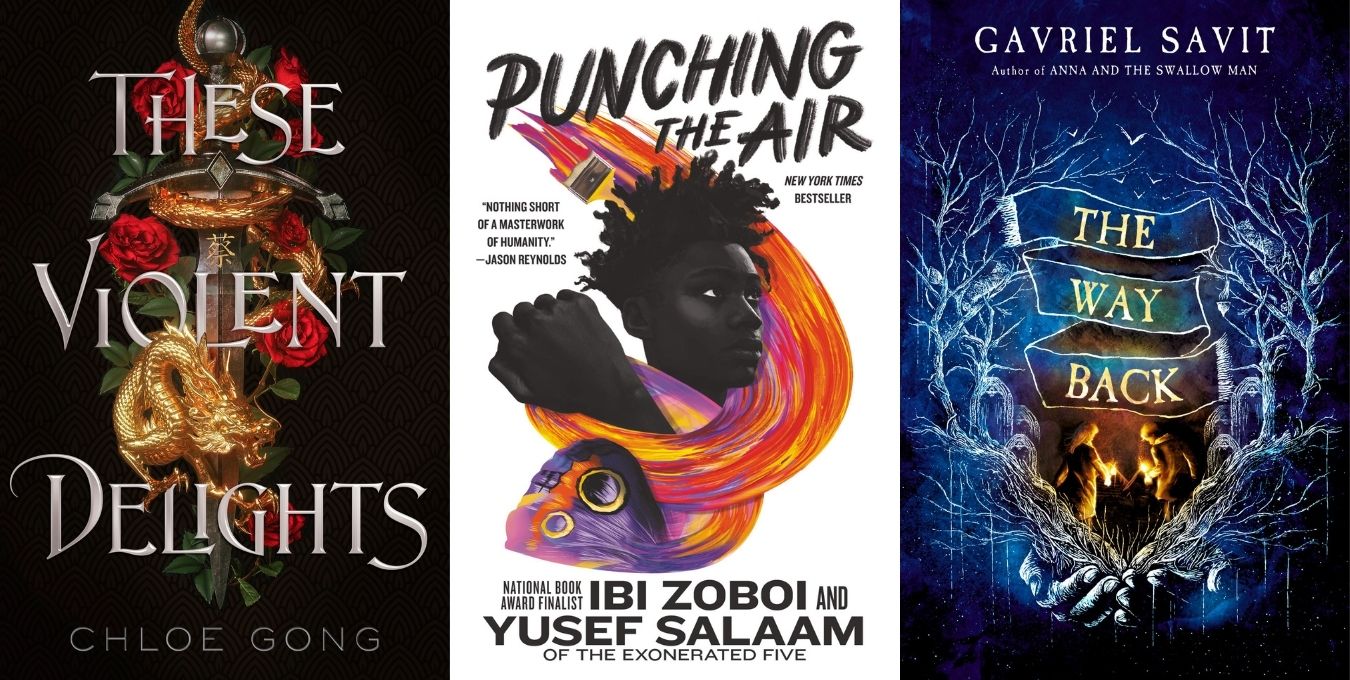
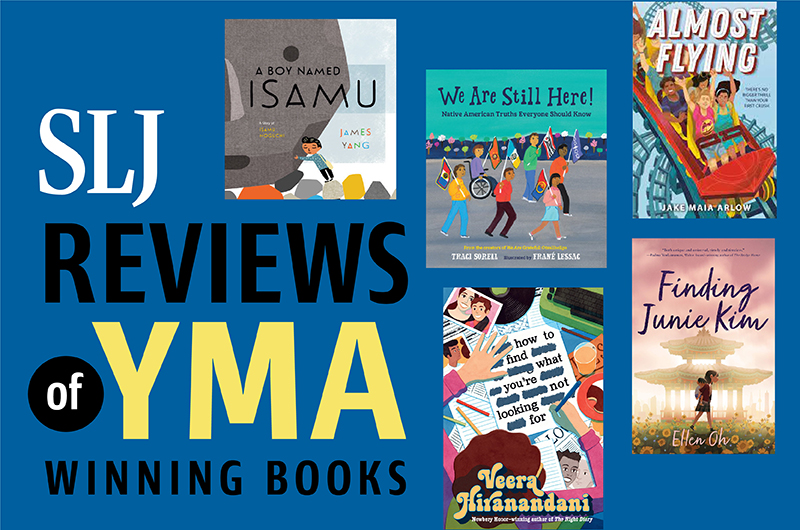
This book was a delightful read, it was both comical and heartwarming to watch Harry’s growth throughout the school year. Jenkin’s strong writing style, wry humor and insightfulness of kids’ experiences in first grade kept me engaged and laughing. I loved how in-depth I got to know the personalities of each kid that sat at ‘goat’ table, from their anxieties about school, to their recess games, antics at lunch, bad jokes and talk of boogers. It matches the real experiences of first graders. The plot, characters, diary-type style and theme work well together in this book. And as Lisa stated, this book is super sweet, endearing, and a joy to read.
This story is so endearing, with well-delineated characters and setting and lots of relatable ideas to comfort young readers and stir nostalgia in adults. Since it would be unusual for a starter chapter book to win the Newbery, I think I’m guilty of underestimating this one. As an elementary librarian, I was too busy thinking about all the great connections you could make using at as a classroom read aloud, such as reading the other great books it references, doing the apple activity, making fluff creatures, etc. Seems with this one that I missed the forest for the trees!
As a veteran first grade teacher, I enjoyed the realistic details in this story. It made me smile to see how a teacher’s plans are interpreted by the six year olds. It made me realize how often teachers gloss over the tiny idiosyncrasies of each individual student in the class. I think this book would be a fun winter read aloud in school and can imagine many first graders trying to read it independently after hearing it. I wondered about the ways the teacher chose to address complicated topics like the history of Thanksgiving. Was the author honestly painting the teacher character as someone who was trying her best to be sensitive or was he trying to show how unprepared most teachers are to handle these topics?
This was such a sweet and unexpected book. I absolutely loved Harry and I felt like Jenkin’s really wrote him with a first grade mind. He seemed so authentic and I could easily imagine him being one of my own students. I think kids will really relate to Harry and what he is going through. This will definitely be a wonderful read aloud for any 1st grade classroom and perfect for more advanced younger readers who can handle the length of this book.
This book really stands out amongst the other titles because so rarely do we see books of this length with such young protagonists. This is a wonderful contribution to children’s literature and that has a lot of potential to win the Newbery.
I loved how realistic and rooted in the school experience it felt! The backmatter was so fun to see
A discrepancy I was concerned about was that Harry’s spelling seems very sophisticated compared to his reading level. In Harry’s journal writing for November 8, (a picture on page 105), he was able to spell ‘cake’, ‘card’, ‘disappointed’, ‘mean’ and ‘friend’ correctly, and understands how contractions work (that’s). In journal writing for December 14, (a picture on p. 151), Harry spells ‘never’, ‘horses’, and ‘makes’ correctly. Yet on January 7, (p. 169), Harry struggled with reading higher level books with digraphs ‘CH’ and ‘SH’ sounds and more silent ‘E’ words. In my experience learning to read and write vowel combination words such as ‘mean’ or ‘r’ controlled words such as ‘card’, ‘never’, ‘horses’ and diphthong words such as ‘disappointed’ comes later in the reading/writing process than digraphs and silent ‘E’ words.
Maybe he could correctly spell ‘cake’ in the November 8 journal entry and ‘makes’ in the December 14 journal entry as it states on November 7, (p. 104), that Harry is learning to read silent E words, “He picks a book and practices sounding out words, speaking softly to himself. Silent E makes cub into cube. It makes fin into fine. He is going to remember that and not think about Diamond at all.”
Maybe the teacher corrects all spelling in journals, but it states on p. 105, that the kids don’t have to worry about spelling except for sight words. Maybe all the above words are already on the Word Walls, as the author states in the AUTHOR’S NOTES that sight words are added weekly. (Note that Harry spelled ‘friend’ correctly on November 8, (p. 105), and the word ‘friend’ was not put on the word wall until December 14, (p. 150).
I know this is very nit-picky, but I think getting learning levels right seem pretty important in a book that is all about first grade. Maybe non of these elements would have an impact on the reader, but as a teacher, (nine years teaching first grade), I couldn’t get past this discrepancy.
This book is distinguished as far as plot, characters, style, theme, and showing the emotional realities of first graders, but in my opinion I would mark it a little lower for presentation of information (accuracy).
We’d touched on this issue before, and my current thinking is: there are two sorts of information here: 1) how 1st-graders spell words 2) how words are actually spelled. You can’t get both right at the same time, so there’s just no way to win the “presentation of information” game here. It is my own opinion that the child reader is better-served if 2) is chosen over 1). That is, I’d personally penalize a book more for “presentation of information” and “excellence of presentation for a child audience” if words were misspelled in a realistic way.
Leonard, I do not think the discrepancy is spelling alone, how 1st graders spell words or how words are actually spelled. To me the mismatch is Harry’s reading level, as Jenkins has stated in this book several places, compared to his spelling level in his writing. It appears that Harry is able to spell words correctly that he actually can’t read. I think Jenkins could of solved this problem by showing Harry’s writing (in pictures) using ‘invented spelling’ incorporating the concepts that Harry already knows how to read, then in her text write the interpretation of Harry’s writing, and that would make the reading/writing discrepancy more accurate. The emotional realities of first grade are so accurate in this book, and I would like to see the reading/writing realities to be more accurate.
Rox Anne, I had a similar issue with accuracy. A couple of times, it’s mentioned that Harry’s friend Mason is turning 6. He has his birthday party over the winter break, and Harry thinks that he’s excited to turn 6. But the kindergarten cutoff in NY is December 1st! Harry and Mason wouldn’t be turning 6 in December or after, they’d be turning 7! This would have been such an easy thing to get right and it really bothered me! Especially because in general, I do think this book is a great portrayal of 6-7-year-olds. I have a 2nd grader who just turned 8 and I wish this book had come out about 2 years ago, because she would have loved it then.
Sarah, this issue was raised in the earlier discussion here about this book. When I looked this up on the internet, it seemed that although New York state generally may have a December 1 cut-off, New York City’s cut-off is December 31, so this is not an inaccuracy in this book as far as Mason’s birthday goes. On the other hand, it is a little odd that there is then no mention of Harry turning 6 in December.
I’m so glad I read this for HMAC, because I don’t think I would be aware of this book! It was so touching to see a realistic first grade classroom and see Harry grow in his confidence as a student. I particularly loved the social emotional lessons in this book, especially when Harry learns to voice his feelings in a healthy way and solve conflicts with his friends and classmates.
Harry Vs. The First 100 Days of School is not one I would say would be my first choice as a Newbery contender. I do not think there was enough of a plot for this book- it ended up being very repetitive where Harry does not like something, a person or experience changes his mind, and then he likes it. If this had been a series meant for actual first graders, that would be fine, but I think kids who could read this title would get bored very easily. Harry and his friends do not sound like actual first graders, at times they sound too mature and at other points they sound immature. Overall, I think this book is missing some key points of the Newbery Criteria.
Harry Vs. The First 100 Days of School is not one I would say would be my first choice as a Newbery contender. I do not think there was enough of a plot for this book- it ended up being very repetitive where Harry does not like something, a person or experience changes his mind, and then he likes it. If this had been a series meant for actual first graders, that would be fine, but I think kids who could read this title would get bored very easily. Harry and his friends do not sound like actual first graders, at times they sound too mature and at other points they sound immature. Overall, I think this book is missing some key points of the Newbery Criteria.
I agree Michelle. I enjoyed the book and it will be a great read-aloud.
I see plot threads being realistically developed over many different timescales. For example, take only Harry’s relationships with each member of the goat table: each develops at its own pace, with varying amounts of conflict, and delicately tuned to the personalities and circumstances of each character. Harry’s relationship with Diamond does proceed the way you describe, but Abigail’s arc is relatively extended, and Wyatt’s develops across the entire book, probably matched in length only by the becoming-an-expert theme. And I think that long arc makes Wyatt more heartbreakingly and complexly rendered than any of the bullies or antagonists in PITY PARTY, STARFISH, BEATRYCE, GENIUS, and maybe even JUST LIKE THAT. That Jenkins can do that under the constraints she works under is strongly distinguished in my opinion.
Leonard, I agree that the realistic development of the plot threads of Harry’s relationships with each member of the goat table is one of the strengths of this book. That each develops at its own pace, with varying amounts of conflict and delicately tuned to each personality and circumstance is hard to achieve in-depth in a chapter for early readers. Jenkins is able to nail this!
This book is a conundrum for me! There are many things to praise, yet I’m not committing a Newbery vote – honor at best – until I have reread all the titles up for consideration. For me, that already works against a title.
The narrative structure of the daily journal is lovely, and it gives young readers an opportunity to visit another classroom and observe genuine feelings of insecurity, fear, anxiety, frustration, and anger. This is all nicely balanced with very real celebrations of accomplishments, humor, and everyday pleasantries.
I agree with those who praise the level of empathy demonstrated in Ms. Peek-Schnitzel’s classroom. But it feels like the classroom that we all want for our children. I would have appreciated the empathy realized through more realistic challenges. Perhaps Wyatt could have taken a bit longer to work out his challenges?
Having spent a lot of time in elementary classrooms, I tend to agree with Michelle and others who struggle with the contrasting behaviors and voices of the same character. I can easily see multiple levels of maturity among the students, but there is an inconsistency here that I find distracting. There were moments that the dialogue felt more like an opportunity or “lesson” for the reader to hear model students handling a checklist of social and emotional challenges within a classroom. The voices felt a little too “spot on.” Even Charlotte feels a bit too perfect for an older 4th grade sibling. When Harry asks her to purchase a bag of cheese puffs (p. 207-208), she happily agrees, “ruffling his hair.” Do 4th grade siblings find their younger brothers adorable enough to ruffle their hair? It feels like an adult response.
If this was the actual committee, the book would come up against discussions of Billy Miller Makes a Wish and Maybe, Maybe Marisol Rainey – equally endearing titles for this age group. Is this a book that I would recommend for classroom read-alouds? Sure! Is this the book I’m ready to give a precious Newbery ballot vote to? I don’t think so.
I have a second grader and a prekindergartner and I do think my oldest would ruffle the younger one’s hair! And then hit her in the head, probably, haha.